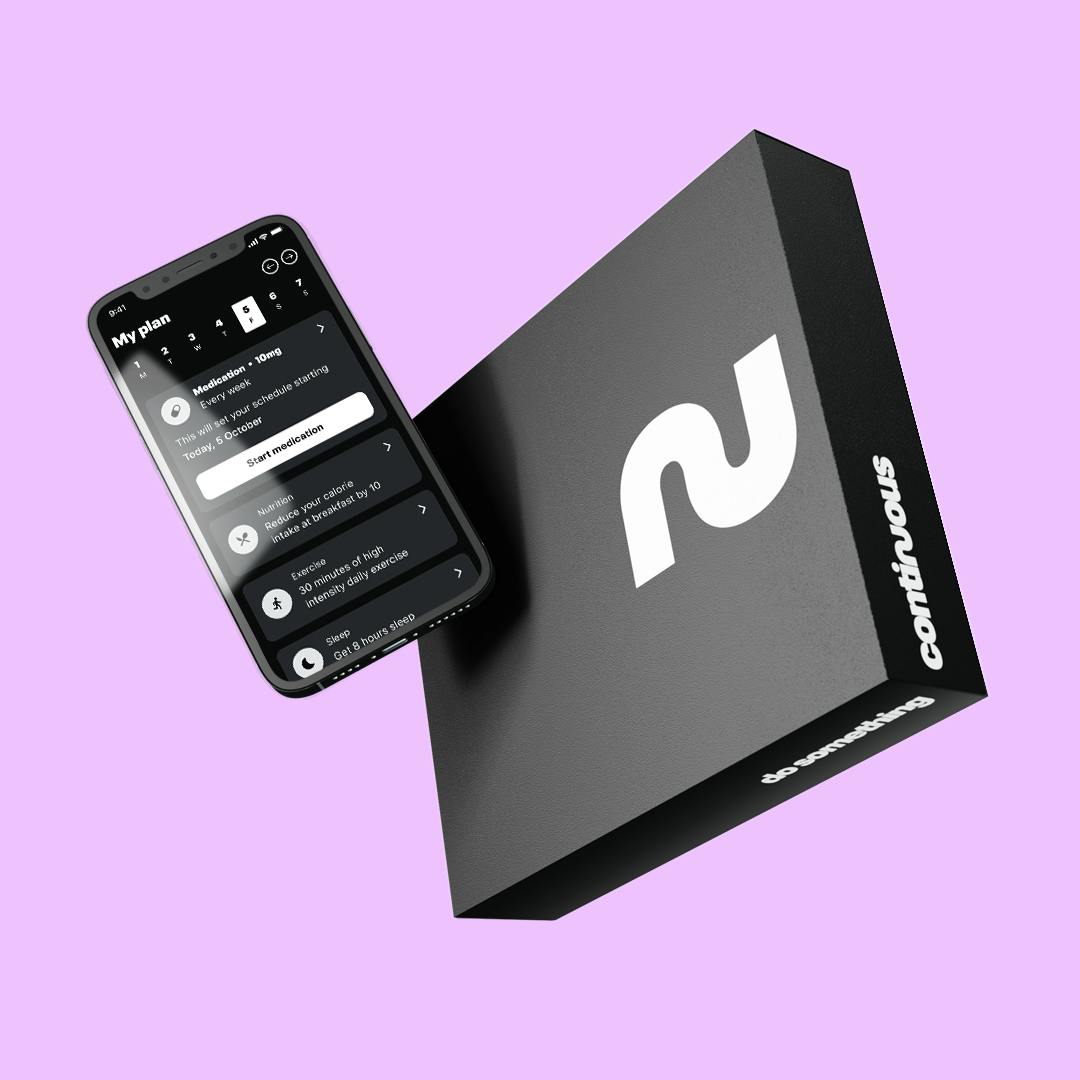Wegovy contains the active ingredient semaglutide. Semaglutide has been used as a treatment for type 2 diabetes mellitus for years but was only recently prescribed for the treatment of weight loss under the brand name, Wegovy. All of this can make one wonder how safe it is to take Wegovy. We at Numan are here to answer that, and all other questions about the safety of Wegovy.
What is semaglutide?
Semaglutide is the active substance in Wegovy, Rybelsus and Ozempic. These medications differ from one another in the way you take them; while you have to inject yourself once a week with Ozempic and Wegovy, Rybelsus is a tablet you swallow every day.
Semaglutide reduces blood sugar levels by increasing the amount of insulin and lowering the amount of glucagon. This is the wanted effect when treating type 2 diabetes patients and led to the development of Ozempic. It does that by mimicking GLP-1, a natural hormone that also affects appetite. When taking semaglutide, the appetite is reduced, leading to less food consumption. It also lessens your cravings for fatty foods and makes the food stay longer in the stomach while you eat. All these effects can help with weight loss, which is why Wegovy was developed.
Side effects
Like all medications, Wegovy can cause side effects, although not everybody gets them. Many of the most common side effects affect the gastrointestinal system and can cause nausea, diarrhoea and vomiting. Most patients find that these side effects resolve with time, once their body is accustomed to the medication. In severe cases, they can lead to loss of fluids (dehydration), which in the worst case can cause kidney failure. To avoid this, it’s very important to drink a lot of water.
There are a lot of things you can do yourself to avoid many of the side effects. Eating smaller meals and having knowledge of which foods to eat and which to avoid are some examples.
There’s also a risk of low blood sugar if you take Wegovy together with other diabetes medications. Wegovy is not suitable if you’ve ever had an inflamed pancreas (pancreatitis). Because of this, be sure to fill out the health questionnaire correctly and disclose information about your entire medical history and all medications you take so that our clinicians can make an informed decision when prescribing Wegovy to you.
Off-label prescriptions
Since semaglutide has a lot of benefits for weight management, doctors sometimes prescribe Ozempic or Rybelsus as a weight-loss treatment to people who don’t have type 2 diabetes. This is done off-label in the UK since neither Rybelsus nor Ozempic has a product license for weight loss. This doesn’t mean that they’re unsafe for use. They do have UK product licenses for type 2 diabetes, meaning they have gone through all necessary clinical trials and evaluations to be considered safe and effective medications. When they’re prescribed off-label, it’s done after careful consideration and only if the prescriber thinks that the medication is safe for you and that you will have predominant benefits from using it.
Wegovy has recently been launched in the UK, which contains the same active ingredient as Ozempic and Rybelsus and is licensed to treat weight loss and weight management.
Clinical trials on semaglutide
No medication is 100% risk-free, but to ensure that they do not harm and are effective, they go through many clinical trials before they’re approved. Wegovy, Rybelsus, and Ozempic have gone through all the clinical trials needed and been reviewed by UK regulatory authorities to finally receive their UK licenses. Semaglutide has been shown to be safe and effective as a treatment for type 2 diabetes in many studies, and it has also been shown to have positive effects on weight loss in patients with type 2 diabetes.
There are also clinical studies looking at how semaglutide and other GLP-1 agonists affect weight in persons without type 2 diabetes. These studies have shown that GLP-1 agonists, and especially semaglutide, have superior antiobesity effects compared to placebo and metformin (which is another type of treatment for type 2 diabetes). When compared to other weight loss medications, semaglutide was still shown to be one of the most effective weight loss treatments.
When semaglutide was tested on laboratory animals, semaglutide showed an increased risk of thyroid tumours including cancer. This does not mean that the medication has the same effect on humans, but as a precautionary measure, semaglutide is not being prescribed if you or any of your family members have ever had a type of thyroid cancer called medullary thyroid carcinoma (MTC).
The numan take
Wegovy is proven to be a safe and effective medication for weight loss. The potential side effects often subside after a while on the treatment, and there are things you can do to avoid them. Numan will always provide all safety information you need for the medications you get prescribed, and if you ever feel unsure or have any questions you're always welcome to get in touch with us.







